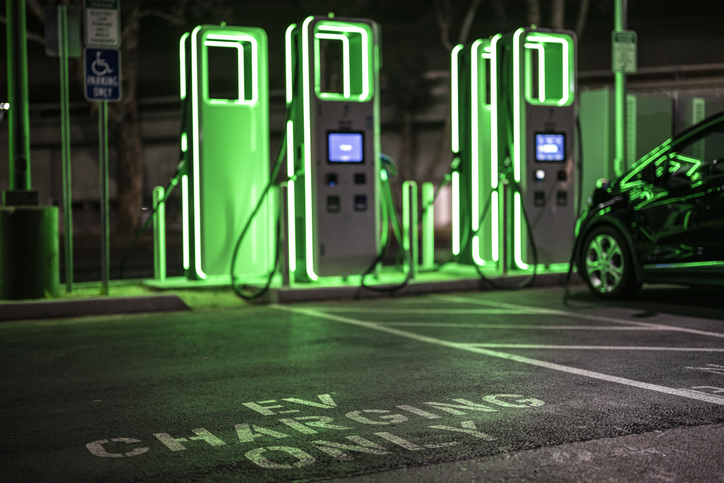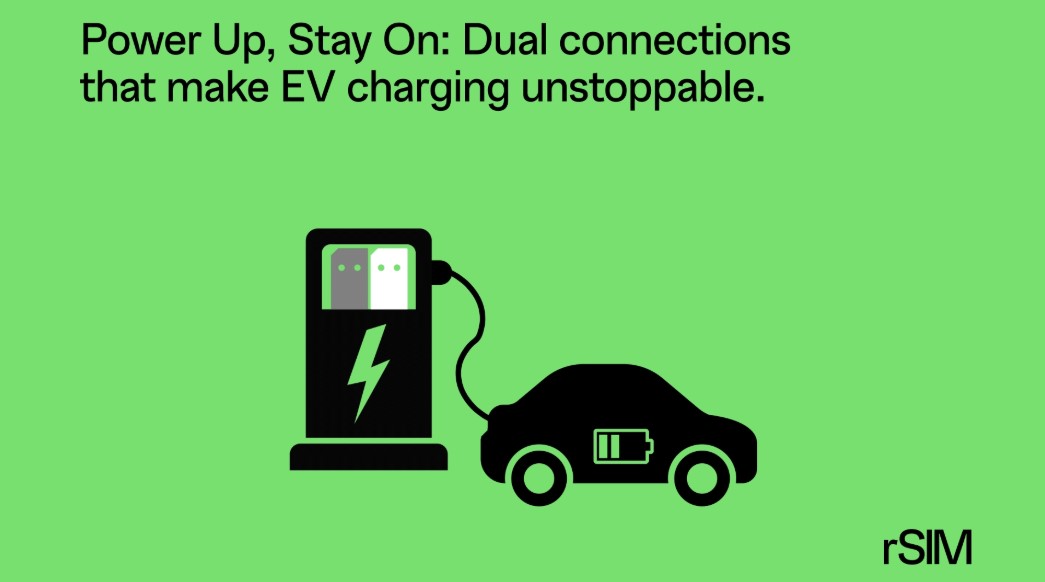CSL Group: Solving EV Charging Connectivity Challenges with rSIM

The transition to electric vehicles (EVs) is well underway, with governments worldwide pushing for widespread adoption to meet climate targets. However, a major challenge threatens to slow progress, charging reliability. Despite the increasing number of charge points, connectivity failures remain one of the biggest causes of unreliable EV charging.
The Connectivity Challenge in EV Charging
A charging station is only as good as its connectivity. If a charger cannot communicate with the network, it cannot verify payments, authenticate users, or report its availability. The result? Drivers arrive at non-operational charge points, leading to frustration, lost revenue for operators, and slower EV adoption.
This is not a minor issue. According to a 2023 report from the UK’s Competition and Markets Authority (CMA), up to 15% of public EV chargers are out of service at any given time, often due to connectivity failures. In the US, a Car and Driver study found that connectivity issues account for 55% of failed charging sessions, while research from Harvard Business School indicates that EV chargers have an average reliability score of only 78%, far below the near 100% uptime of petrol stations.
In response, several governments are introducing strict uptime requirements:
- United Kingdom: The UK’s Public Charge Point Regulations 2023 mandate that all rapid and ultra-rapid charge points must have 99% uptime.
- Germany: Operators must meet stringent performance and reporting standards under the Charging Station Ordinance (Ladesäulenverordnung).
- United States: The National Electric Vehicle Infrastructure (NEVI) Formula Program requires a 97% uptime standard for federally funded chargers.
- France, Netherlands, and Norway: Each has introduced strict service-level agreements for public chargers, with financial penalties for non-compliance.
Meeting these reliability targets requires connectivity solutions that go beyond basic roaming or fallback mechanisms, and that’s where rSIM comes in.
rSIM: Enhancing Uptime for EV Charging Networks

Traditional SIM cards rely on a single network or, at best, a dual-SIM setup with a backup provider. But network failures, poor signal quality, or stale sessions (where a connection appears active, but no data is passing) can still leave chargers stranded.
rSIM is different. It continuously monitors network conditions at the SIM level, checking every 60 seconds (or as configured) for real connectivity, not just network attachment. If no data is passing, rSIM autonomously falls back to an alternative mobile operator stored on the SIM, without requiring manual intervention or on-site engineer visits.
How rSIM Solves EV Charging Connectivity Issues:
- 99% Uptime Compliance: By using a combination or roaming and rSIMs connectivity fallback, rSIM helps operators meet government-mandated uptime targets.
- Resilience Beyond Roaming: Unlike traditional SIMs that rely on external network steering, rSIM makes autonomous decisions at the SIM level, preventing devices from becoming stranded.
- Lower Maintenance Costs: Fewer site visits mean lower operational costs and higher service availability.
- Simplified Device Design & Lower Costs: With rSIM, EV charging companies do not need to redesign their chargers to support two SIM cards or develop complex firmware logic to manage network switching. Instead, rSIM manages resilience within a single SIM. This eliminates the need to buy separate connectivity plans from two operators, reducing both BOM (Bill of Materials) costs and ongoing operational expenses.
Case Study: Evology Charging & rSIM

Evology Charging, a UK-based charging operator, integrated rSIM into its charging infrastructure to enhance uptime and reliability. By leveraging rSIM’s autonomous and always on connectivity, Evology ensures its chargers remain operational without requiring manual intervention or on-site troubleshooting due to connectivity failures.
By adopting rSIM, Evology meets the UK’s 99% uptime requirement while lowering operational costs, as fewer chargers require on-site troubleshooting.
Connectivity is the Key to EV Adoption
The future of EV charging depends on infrastructure that works, every time. As uptime requirements tighten and EV adoption accelerates, charging networks need resilience built into their connectivity solutions.
With rSIM’s unique ability to detect and resolve connectivity failures autonomously, EV operators can meet regulatory requirements, improve driver experience, and support the global shift to sustainable mobility.
Learn more about how rSIM powers resilient EV charging:
Evology
ENHANCING EV CHARGING CONNECTIVITY WITH rSIM TECHNOLOGY
About CSL Group
CSL was founded by Simon Banks in 1996, as a UK alarm signalling provider. Today, we have over 2 million managed connections supporting mission-critical IoT applications across Europe, and we are continuing to grow and innovate.
We connect, manage and secure the Internet of Things. The world of Critical Connectivity is ever changing. We're constantly developing, evolving and transforming our platforms and services to bring our customers more powerful connected solutions.


Comments
There are no comments yet for this item
Join the discussion